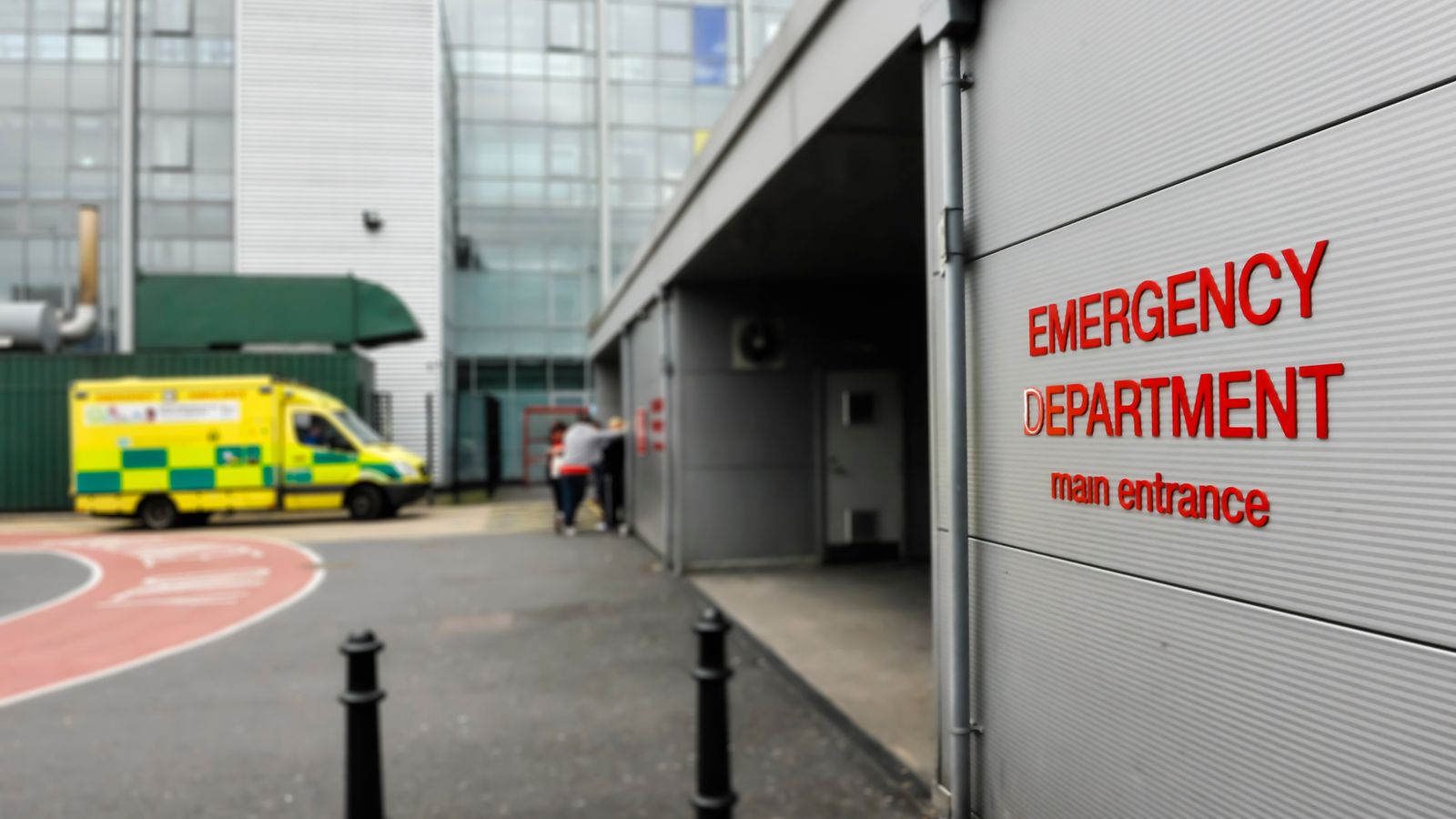A study looking at eight major cancers has found more than a third of patients in England, Wales, and Scotland were only diagnosed after being taken to A&E.
In Northern Ireland, which was measured in a different way, more than a quarter of diagnoses (28%) were made after the patient needed urgent care.
People who end up in emergency departments, sometimes after repeated trips to their GP, are less likely the survive the disease.
Death is particularly more likely if they are diagnosed with stomach, bowel, liver, pancreatic, lung, or ovarian cancer.
From 857,068 cancer patients in all the country regions, the percentage of diagnoses made in emergency hospital departments ranged from 24% to 43%.
Conducted by the International Cancer Benchmarking Partnership, alongside Cancer Research UK, the study also found the UK has the highest number of A&E cancer diagnoses in comparison to similar high-income countries.
It looked at cancer data and linked hospital admissions from 14 areas in six countries: Australia, Canada, Denmark, New Zealand, Norway, and the UK, covering 2012 to 2017.
Louis van Gaal: Former Manchester United coach reveals he has prostate cancer
‘Long-term decline’ in critical cancer care as ‘exhausted’ NHS workers battle staff shortages
Pancreatic cancer may be able to be detected in stool samples, study finds
In terms of individual cancers, 46% of people with pancreatic cancer were diagnosed in an A&E overall, but the figure was much higher, in England and Wales at 56%, and sat at 59% in Scotland.
In comparison, in New Zealand 60% of pancreatic cancer patients were diagnosed in an emergency department, while that figure sat at 55% in Norway.
Some 34% of people in England and Wales and 35% in Scotland were diagnosed with bowel cancer in an emergency, but that figure was 27% in Ontario, Canada and 32% in New South Wales in Australia.
Those aged 75 and over were more likely to be diagnosed in an A&E, as were those whose cancer was advanced, the study found.
Cancers that often had non-specific, vague symptoms, such as pancreatic, liver, lung, and ovarian cancer, were also more likely to be uncovered in an emergency department.
Please use Chrome browser for a more accessible video player
‘It could save your life’
Father-of-two Matthew Black started having stomach problems and losing weight in April 2020, but his bowel cancer symptoms were thought to be after-effects of COVID and he was later diagnosed in A&E.
Read more:
NHS cancer treatment waiting times at record high – how bad are they and why?
The 57-year-old, who has since been given the all-clear, said: “It’s too bad my cancer wasn’t caught earlier, but I consider myself extremely lucky.
“It’s important people do not ignore sudden or unusual changes to their bodies. And don’t leave it too long to get back in touch with the GP practice if symptoms don’t go away or get worse.
“It could save your life.”
Situation could be worse following pandemic
Cancer data often has a time lag, but Cancer Research UK said it feared the outlook is now even worse following the COVID-19 pandemic.
The charity’s chief executive, Michelle Mitchell said: “For months we have been warning that cancer survival could go backwards due to the pandemic.
“The UK is already lagging when it comes to cancer survival – this study helps us understand why, showing that countries with higher levels of emergency presentations have lower survival.”
He also called on the government to take “bold action” within its cancer plans to ensure less than 10% of cancer cases are diagnosed through emergency routes by 2032.
Follow the Daily podcast on Apple Podcasts, Google Podcasts, Spotify, Spreaker
An NHS spokesman said the number of A&E diagnoses has been “falling steadily” since 2012 and 2017 and more than 200,000 patients were checked for cancer in January alone.






















